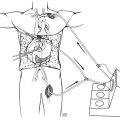
In the ever-evolving world of healthcare, nurses stand at the forefront of patient care. Their role is pivotal in shaping patient experiences and outcomes. Amidst the bustling corridors of hospitals and clinics, nurses juggle numerous responsibilities, each demanding a unique blend of skill, empathy, and dedication. This article offers ten practical tips for nurses aiming to elevate their patient care to new heights. Each tip is crafted to enrich the nurse-patient relationship, ensuring that care is not only effective but also compassionate and tailored to individual needs. Let’s delve into the first five tips that can transform everyday nursing practices.
1. Active Listening: The Key to Understanding
Active listening goes beyond hearing what a patient says; it involves understanding the emotions and concerns behind their words. As a nurse, practice being fully present during patient interactions. This means putting aside other thoughts and focusing entirely on the patient. Show that you’re listening by nodding, maintaining eye contact, and occasionally summarizing their words. This not only helps in gathering accurate information but also makes the patient feel valued and understood. Remember, effective communication is a two-way street, and it starts with good listening.
2. Personalized Care: Tailoring to Individual Needs
Every patient is unique, with specific needs, preferences, and backgrounds. Personalized care involves recognizing these individual differences and tailoring your approach accordingly. This might mean adjusting communication styles, being sensitive to cultural backgrounds, or accommodating personal preferences where possible. For nursing students, this aspect is especially crucial during clinicals for nursing, as it’s a prime opportunity to learn how to adapt to diverse patient needs in real-life settings. Personalized care not only improves patient satisfaction but also fosters a deeper nurse-patient connection, enhancing the overall quality of care. It’s about seeing the person, not just the patient. Integrating lessons from clinicals for nursing into daily practice can significantly refine the ability to provide care that truly resonates with each individual’s unique situation.
3. Continual Learning: Staying Informed and Skilled
The healthcare field is constantly advancing, and staying informed is crucial for providing top-notch care. Continual learning can take many forms: attending workshops, participating in webinars, or reading the latest research in nursing and medicine. This dedication to learning ensures that your practices are based on the most current knowledge and standards. Furthermore, it empowers you to bring innovative ideas and techniques to your patient care, significantly improving outcomes and patient experiences.
4. Empathy: Connecting on a Deeper Level
Empathy is the ability to understand and share the feelings of another. In nursing, this means putting yourself in your patients’ shoes, and understanding their fears, concerns, and hopes. An empathetic approach builds trust and opens lines of communication, making patients more likely to share important health information and adhere to treatment plans. Displaying genuine care and concern can make a significant difference in a patient’s emotional and physical well-being.
5. Time Management: Balancing Efficiency with Care
Effective time management is crucial in nursing. It’s about balancing efficiency with thorough, compassionate care. Prioritizing tasks, organizing your day, and working smartly can free up time to spend more quality moments with patients. This doesn’t mean rushing through tasks but rather being strategic about how you use your time. Good time management reduces stress for both you and your patients, leading to a calmer, more positive care environment.
6. Feedback and Self-Reflection: Learning from Experience
Self-reflection and feedback are vital tools for growth in any profession, particularly in nursing. Regularly take time to reflect on your interactions with patients and colleagues. What went well? What could be improved? Seek constructive feedback from your peers and supervisors. This process not only enhances your professional skills but also fosters a culture of continuous improvement in patient care. Learning from each experience, whether positive or negative, is a stepping stone to becoming a more effective and empathetic nurse.
7. Advocacy: Being the Voice for Patients
Nurses often act as intermediaries between patients and the complex healthcare system. Advocating for your patients’ needs and rights is a crucial aspect of providing exceptional care. This might involve speaking up for a patient’s treatment preferences, ensuring they have access to necessary resources, or helping them navigate the healthcare system. Advocacy reinforces the trust patients place in nurses and can significantly impact their healthcare journey.
8. Technology Utilization: Enhancing Care with Innovation
In today’s digital age, embracing technology is indispensable for modern nursing. From electronic health records to telemedicine, technology offers tools that can significantly enhance patient care. Staying updated with the latest technological advancements and incorporating them into your practice can streamline processes, improve accuracy in patient records, and offer new ways to connect with and monitor patients. Effective use of technology can lead to more efficient and personalized care.
9. Physical and Emotional Self-Care: The Foundation of Good Nursing
To provide the best care for others, nurses must first take care of themselves. This includes maintaining physical health through proper nutrition, exercise, and rest, as well as attending to emotional well-being. Managing stress, seeking support when needed, and ensuring a work-life balance are essential. A well-rested, healthy nurse is more attentive, empathetic, and effective in delivering patient care.
10. Team Collaboration: Strengthening Care through Unity
Nursing is rarely a solo effort; it involves collaboration with a diverse team of healthcare professionals. Effective communication and teamwork enhance patient care by pooling different skills and perspectives. Be open to learning from your colleagues, and don’t hesitate to offer your expertise. A collaborative environment fosters a more comprehensive and cohesive approach to patient care, ultimately benefiting those you serve.
Conclusion
Improving patient care is a multifaceted endeavor that extends beyond clinical skills. It involves a blend of empathy, continuous learning, effective communication, and personal well-being. By incorporating these ten tips into your practice, you can elevate the level of care you provide, making a profound impact on your patients’ lives. Remember, the heart of nursing lies in the dedication to bettering the lives of those in your care. By striving for excellence in these areas, you uphold the noble tradition of nursing while paving the way for a brighter future in healthcare.




